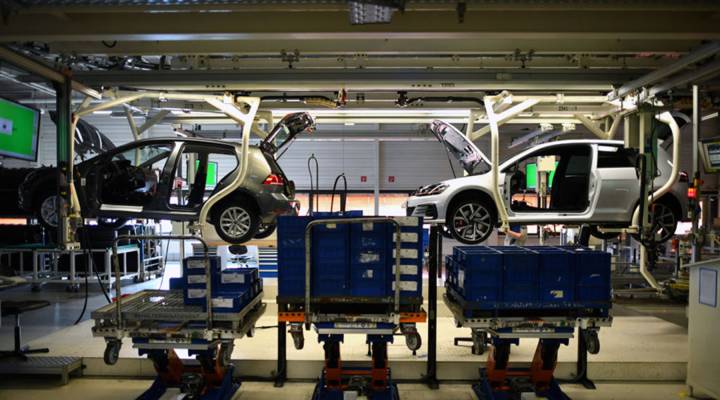
Why the auto industry (mostly) opposes proposed tariffs
Why the auto industry (mostly) opposes proposed tariffs

The Trump administration imposed tariffs on imports of steel and aluminum first. It then added tariffs worth $50 billion on Chinese exports, which it may increase to $250 billion in the coming months. Since May, it’s also been considering whether to impose tariffs of up to 25 percent on imports of cars and auto parts.
These tariffs are a type of protectionism — a way to shield domestic industries from foreign competition. Taxing imported goods makes foreign products more expensive relative to domestic ones. Therefore, it should be relatively easy to predict which companies will support them and which won’t. Often, domestic producers favor tariffs, while their foreign competitors and those who buy their products oppose them.
However, when it comes to auto tariffs, the domestic-foreign division doesn’t hold. The line between domestic and foreign auto companies, between who’d benefit and who’d be hurt by tariffs, is now much murkier than in the past.
“For the longest time, we just never waded into trade issues,” said Jennifer Thomas, vice president of federal government affairs at the Alliance of Automobile Manufacturers, which represents both American and foreign automakers — companies like Ford and General Motors, but also Toyota and BMW. “We just took trade off the table. We just could not reach a consensus.”
But Thursday, Thomas was one of 44 stakeholders who testified against the imposition of tariffs during a public comment day at the Department of Commerce. Only one of the registered speakers spoke in favor of tariffs, according to analysis by Politico.
“All of our member companies are now global companies, so they’re all impacted by these tariffs in some fashion,” Thomas said in an interview before her testimony. She said tariffs would make cars more expensive for consumers, decrease sales and put American jobs at risk.
“There are no major national car companies that are just American or just German or just Japanese,” said Emily Blanchard, a professor at Dartmouth’s Tuck School of Business.
Even within one company, tariffs could affect different models in different ways.
“For example, if you want to buy a Subaru Outback, there’s a really good chance that your Outback was made in the United States,” Blanchard said. “But if you buy a Forester right next to it on the lot, that Forester was made in Japan.”
Moreover, the Trump is administration is also considering whether these tariffs should apply to car parts as well.
Whether Canada and Mexico are included or exempted from the tariffs would have a significant impact on how they would affect the auto industry, said Kristin Dziczek, vice president of industry, labor and economics at the Center for Automotive Research.
“There’s a lot of Canadian and Mexican content in domestically built vehicles and there’s a lot of U.S. content in vehicles built in Canada and Mexico,” she said. “The auto supply chains within NAFTA are so integrated.”
Despite being close trading partners and allies, Canada and Mexico were not exempted from recent tariffs on steel and aluminum.
Like with those metal tariffs, the question the Trump administration is considering is whether auto imports are a threat to U.S. national security.
In announcing its investigation, the Commerce Department said: “Automobile manufacturing has long been a significant source of American technological innovation.” It wants to determine whether imports are weakening the industry in a way that could have implications for the overall economy and compromise national security.
Should the Trump administration decide to move forward with the tariffs, other countries will surely retaliate, said Dartmouth’s Blanchard.
“If the U.S. puts on substantial auto tariffs, this is yet another policy grenade going off in the trade policy landscape,” she said. “And I would be very surprised if this didn’t substantially and rapidly escalate the trade war.”
Last month, Commerce Secretary Wilbur Ross said the investigation could conclude as early as late July or August.
There’s a lot happening in the world. Through it all, Marketplace is here for you.
You rely on Marketplace to break down the world’s events and tell you how it affects you in a fact-based, approachable way. We rely on your financial support to keep making that possible.
Your donation today powers the independent journalism that you rely on. For just $5/month, you can help sustain Marketplace so we can keep reporting on the things that matter to you.


















